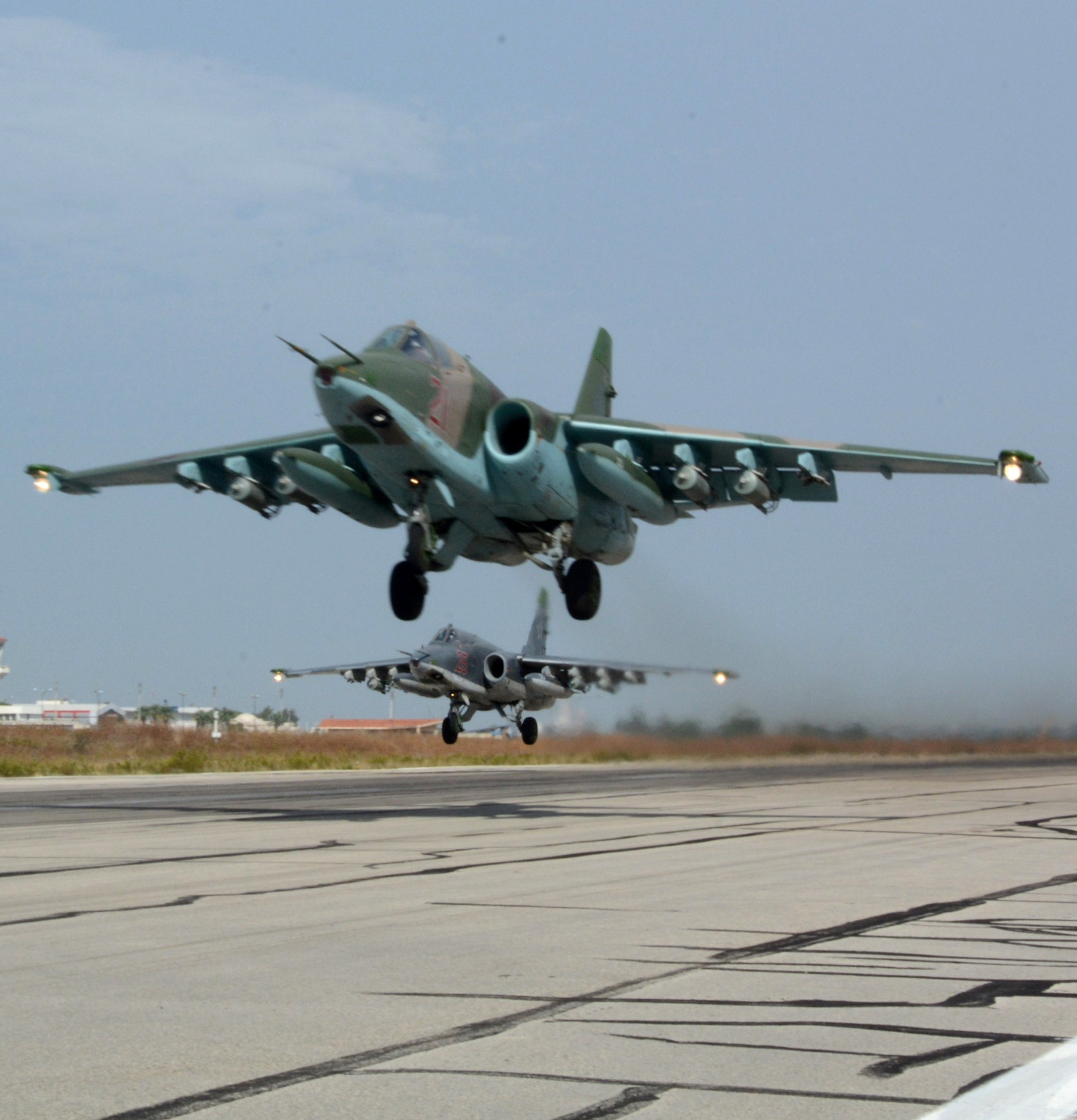Russia shows military might in Syria, eyes seizing diplomatic initiative
As Russia unleashed waves of warplanes Thursday from an air base in western Syria to pound militant targets in view of Moscow-based journalists, President Vladimir Putin pushed diplomatic efforts with the West, stressing the need “to consider each other as allies in a common fight.” The Kremlin believes it has taught Washington an object lesson in how to take on Islamist militants in Syria. Basking in the afterglow of Bashar Assad’s surprise visit to Moscow this week, it now believes it could lead the way diplomatically too. Indeed there is a growing sense in Moscow, and among diplomats and politicians in some countries in the Middle East and the West, that Russia has a better chance than most to combine its increased influence over Assad with its military muscle in Syria’s skies to broker a deal to end the conflict.
Right now Russia has more chances than any other country to settle this process. It cannot do this on its own of course. And Russia cannot control Assad. But it can guide him, make deals with him, and advise him as an ally. It’s a massive ask but there is a chance that Russia could pull this off.
Ivan Konovalov, director of the Center for Strategic Trend Studies in Moscow
The U.S. and other Western powers have questioned Russia’s primary motive in the airstrikes that began Sept. 30 and have backed up a Syrian government offensive in central and northwestern regions. Moscow says it is fighting IS and other extremist groups like the al-Qaida-linked Nusra Front, but Washington and others say the intervention is to prop up Assad and is likely to fan the violence. The intervention is also allowing Russia to portray itself as a major global player, projecting its military power far from its borders. Russian Foreign Minister Sergey Lavrov and U.S. Secretary of State John Kerry will meet Friday in Vienna, joined by their counterparts from Saudi Arabia and Turkey, both staunch critics of Assad.
For me the question is less why is Putin doing this, but more why is he able to do it. And here the answer is, whether one likes it or not, because he is filling a void left by U.S. disengagement.
Western diplomat who works on the Syria and Iraq crises

Middle East Putin